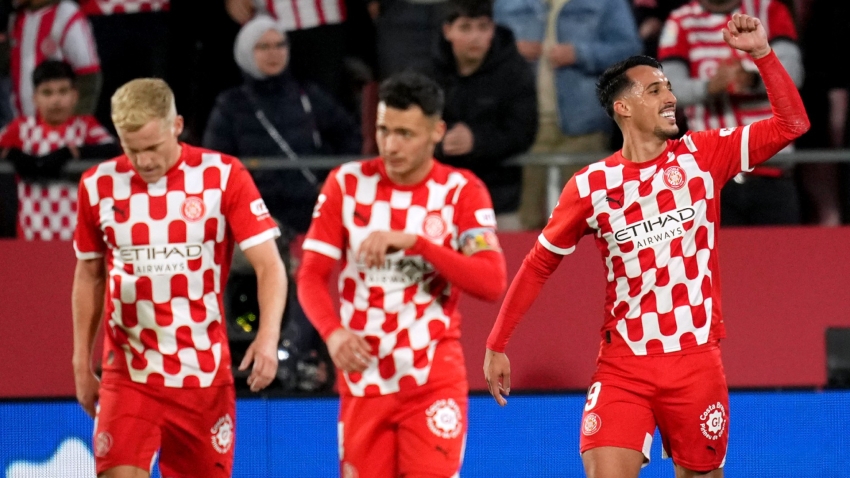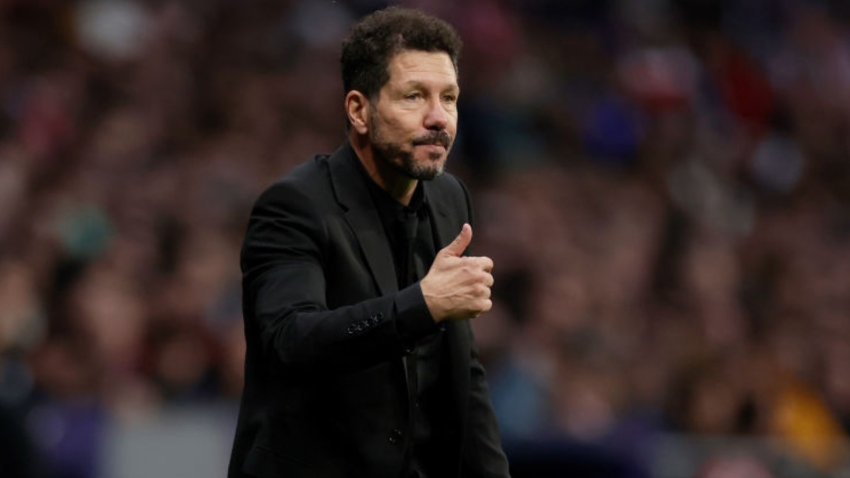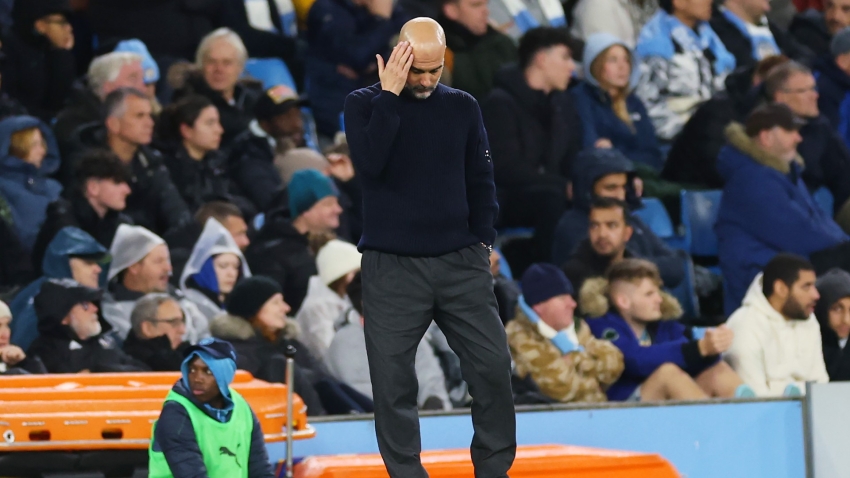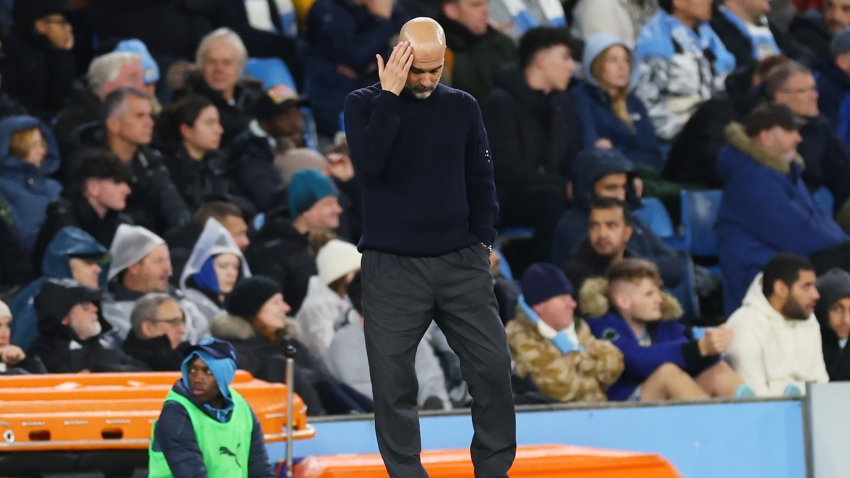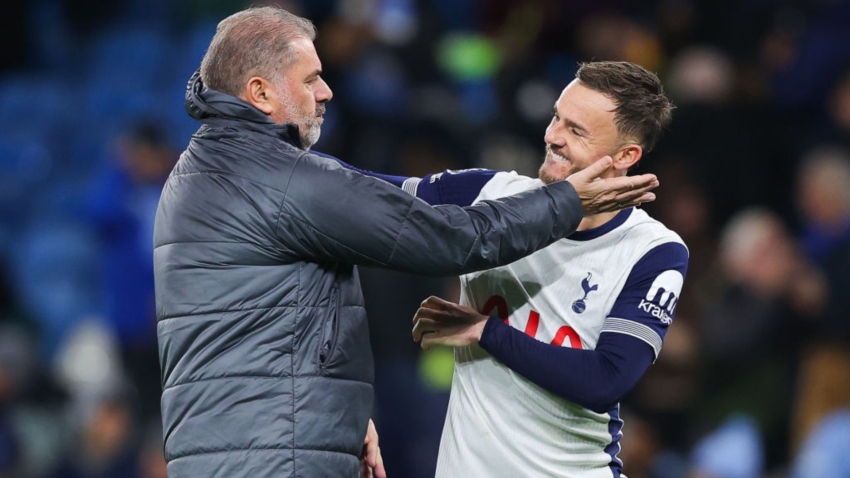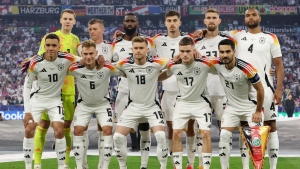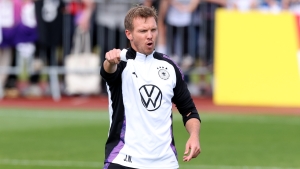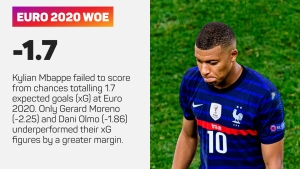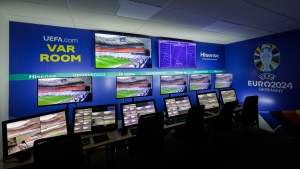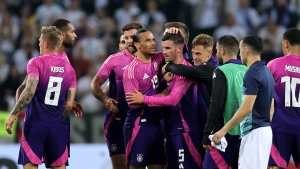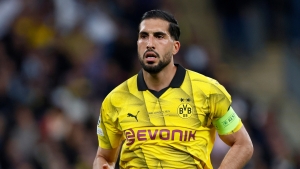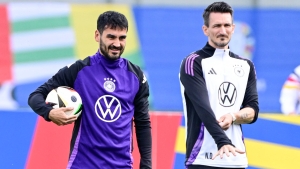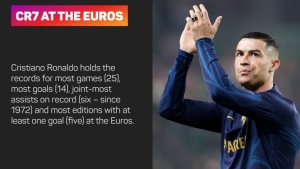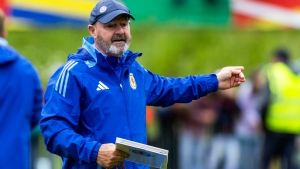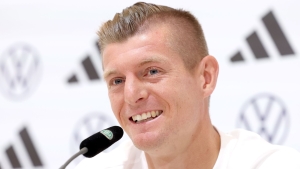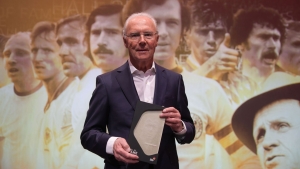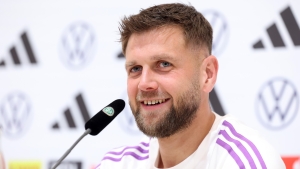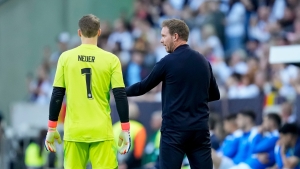Euro 2024 is almost upon us, with Europe's finest preparing to battle it out to be crowned continental champions in Germany.
It all gets under way on Friday as Julian Nagelsmann's hosts face Scotland at the Allianz Arena.
It seems remarkable to think Die Nationalelf – the most successful national team in Europe – have gone eight years without a knockout win at a major tournament, and they will be desperately hoping home advantage inspires a better run this time around.
England, meanwhile, will be looking to bring football home and end 58 years of hurt in the country their captain Harry Kane thrived in last season.
The Three Lions' 2022 World Cup hopes were ended by France, who are again among the favourites. There is plenty more intrigue elsewhere, from defending champions Italy being drawn in a 'group of death' with Spain and Croatia to Cristiano Ronaldo leading Portugal into a sixth edition of the Euros.
And who could forget Georgia's first tournament as an independent nation, or Scotland's attempts to upset the odds in Group A?
As Euros fever grips the continent, we run through the main storylines and contenders, pick out some underdogs and breakout stars to watch and take a look at the Opta supercomputer's predictions.
THE HOSTS
This will be the first edition of the Euros to take place solely in a unified Germany, though the Allianz Arena hosted games at Euro 2020 and West Germany staged the 1988 tournament – won by the Netherlands as Marco van Basten scored one of the most iconic goals in history against the USSR in the final.
This will be Germany's fourth major tournament as sole hosts overall, and they have always gone far on home soil, winning the 1974 World Cup and going out in the semi-finals at Euro 1988 and the 2006 World Cup.
Hopes were not high for them in late 2023 as a dismal run of friendly results saw Hansi Flick become the first Germany coach to be sacked. However, Nagelsmann has restored optimism and has a supremely talented group of players to work with.
Florian Wirtz's emergence as one of Europe's best attacking midfielders offers cause for excitement – the 21-year-old scored 11 goals and added 11 assists during Bayer Leverkusen's unbeaten Bundesliga title-winning campaign to claim Player of the Season honours.
Wirtz, Jamal Musiala and Ilkay Gundogan will likely support Kai Havertz in a fluid attacking quartet, while Toni Kroos' presence in midfield will be a major boost to a team that averaged 59.3 per cent possession at Euro 2020 – second only to Spain (66.8 per cent).
Kroos – who won his sixth Champions League with Real Madrid this month – played more line-breaking passes (214) and passes leading to final-third entries (69) than any other player in Europe's premier club competition in 2023-24.
The major question mark could pertain to Kroos' partner, with Germany having lacked a true midfield enforcer for some time.
They have conceded at least one goal in their last 12 major tournament games, last keeping a clean sheet against Slovakia in the last 16 at Euro 2016. Will that soft underbelly cost them again?
THE FAVOURITES
England
England's Euro 2024 preparations have been far from perfect, with defensive mainstay Harry Maguire missing out through injury and their final friendly ending in defeat against Iceland. However, Gareth Southgate's side enter the tournament as the Opta supercomputer's favourites.
It is not difficult to see why. In Kane, England have a striker whose tally of 44 goals in 2023-24 was only matched by Kylian Mbappe among players from Europe's top five leagues.
In Jude Bellingham, they have the outstanding player from Madrid's double-winning side, recording 36 goal involvements (23 goals, 13 assists) in his debut season in Spain.
And in Phil Foden, Southgate can call upon the Premier League's Player of the Season, who produced talismanic performances against Manchester United, Aston Villa and West Ham to cap Manchester City's fourth straight title success.
With Southgate thought likely to depart whatever the outcome of England's campaign, this tournament must be the culmination of their development into genuine contenders. Penalty shoot-outs excluded, England have only lost one of their last 18 Euros games (10 wins, seven draws) – against Iceland in 2016.
With Marc Guehi now likely to partner John Stones following injury-disrupted campaigns for both players, the key may be Southgate's ability to protect his backline.
Across the 2018 and 2022 World Cups and Euro 2020, England conceded just 0.59 goals per game and allowed opponents a paltry 0.72 expected goals (xG) per match – a figure only bettered by France (0.67) among the leading European teams to make each tournament. Reproducing that kind of solidity will be crucial.
France
Didier Deschamps is eyeing history in Germany, where he could become the first person to win the World Cup and the Euros as both a player and a manager.
Having reached the final at three of their last four major tournaments, Les Bleus are right up there among the favourites again.
The likes of Hugo Lloris, Raphael Varane, Paul Pogba and Karim Benzema may be gone, but France still boast an incredible depth of talent, with Mbappe leading from the front as captain.
Mbappe endured a terrible tournament at Euro 2020, failing to score from chances amounting to 1.7 xG in four games, before missing the vital penalty as France were beaten by Switzerland in a last-16 shoot-out.
Coming into this tournament on the back of a 44-goal season with Paris Saint-Germain and with his long-term future decided, few expect a repeat from Madrid's newest Galactico.
Among the more interesting selections from Deschamps is a recall for N'Golo Kante, who was missed at the 2022 World Cup but failed to prevent Al-Ittihad from finishing a lowly fifth in the Saudi Pro League in 2023-24. With Eduardo Camavinga and Aurelien Tchouameni also included, opposing midfielders are in for a tough time.
A difficult group-stage draw means France will be tested from the very off, though. If they can top a pool containing the Netherlands, Austria and Poland, they could be on course to meet England in a titanic semi-final.
Spain
Spain are the only nation to win back-to-back editions of the Euros, bookending their golden era by triumphing in 2008 and 2012. Since then, La Roja have won just two knockout ties at five major tournaments, with a 2022 World Cup exit to Morocco their nadir.
Luis de la Fuente is the man tasked with bringing back the good times, and victory in the 2022-23 edition of the Nations League represented a decent start.
However, La Roja have been drawn into what is surely the toughest group at the Euros, with Croatia and Italy their first two opponents before they face Albania.
Spain's attractive, possession-based brand of football won them plenty of plaudits at Euro 2020 and the Qatar World Cup, but it did not win them enough games, with Italy, Japan and Morocco all keeping them at arm's length at those tournaments.
As well as averaging the most passes per sequence during Euro 2024 qualifying (six), Spain averaged the most sequences of 10+ passes per game (28.5). Adding an end product is now the aim of the game.
Alvaro Morata must step up after missing a tournament-high six big chances at Euro 2020. He did score 15 goals in LaLiga last term, though, and exciting wide duo Lamine Yamal and Nico Williams should provide him with plenty of service.
Spain's key men in midfield will be Pedri and Rodri.
Man City star Rodri saw his 18-month unbeaten run ended by Manchester United in last month's FA Cup final, but he developed into more than a midfield enforcer in 2023-24, scoring nine goals and adding 14 assists.
Pedri, meanwhile, netted twice in a dominant 5-1 win over Northern Ireland last week, and is back to form after an stop-start season with Barcelona. His Blaugrana team-mate Gavi will be absent through injury, however.
If La Roja are to add punch to their possession play, this pair may need to be the driving force.
Portugal
Portugal are the fifth team to be given more than a nine per cent chance of glory by the Opta supercomputer, as Cristiano Ronaldo heads into his 11th – and potentially final – tournament.
Injury limited Ronaldo to the role of cheerleader when Portugal won Euro 2016, but he has already written his name into the competition's record books and can underline his legacy further in Germany.
Ronaldo holds the records for most games (25), most goals (14), joint-most assists on record (six – since 1972) and most editions with at least one goal (five) at the Euros.
His place was called into question at the Qatar World Cup, but Roberto Martinez has built around him since taking over last year, with the Selecao plundering 36 goals in 10 qualifiers and conceding just two.
With the likes of Bernardo Silva, Bruno Fernandes, Rafael Leao, Joao Felix, Diogo Jota and Pedro Neto all making their squad, Portugal have one of the most exciting attacking line-ups at the tournament.
A kind group-stage draw – pitting them against Czechia, Turkiye and tournament debutants Georgia also plays into their hands – and the Selecao also know topping Group F would put them on the opposite side of the draw to England and France, should they also win their groups.
Lionel Messi's triumph at the last World Cup will only have heightened Ronaldo's desire for more international silverware. With a strong supporting cast behind him, he should not be written off.
THE UNDERDOGS
Scotland
Scotland fell flat on their first tournament appearance of the century at Euro 2020, but there are reasons to suggest the Tartan Army might have more to cheer this time around.
Steve Clarke's side were promoted to the top tier of the Nations League in 2022-23, while a famous 2-0 win over Spain at Hampden Park – courtesy of a Scott McTominay double – set the tone for their successful qualification campaign.
Having lost Aaron Hickey, Nathan Patterson and Lewis Ferguson to injury, Clarke's men face a difficult first test against Germany. However, one win could be enough to qualify under the 24-team format, and they might just fancy their chances of upsetting Hungary or Switzerland.
Austria
Looking to bloody the noses of France and the Netherlands in Group D are Austria, tipped by many to be something of a surprise package under Ralf Rangnick.
Austria finished just one point behind Belgium in qualifying, Rangnick needing little time to implement his high-pressing style. They allowed opponents just 8.3 passes per defensive action (PPDA) in qualifying – the fewest of any team.
Austria also attacked with the highest direct speed (2.03 metres per second), and if their Group D opponents do not match their intensity, they could spring a surprise.
Georgia
One of the stories of the tournament can be found in Group F, with Georgia featuring at a major tournament for the first time as an independent nation – they are the only Euros debutants in Germany.
They failed to qualify directly - their Nations League performance teeing up a penalty shoot-out victory over Greece in the play-offs. They were the only team to reach the tournament while posting a negative goal difference (-6) in their qualifying group.
When it comes to one-off games, though, they do have match-winners. Napoli's Khvicha Kvaratskhelia completed the joint-most dribbles of any player in qualifying (44), alongside Jeremy Doku, also scoring four goals and providing one assist.
Georgia also have international pedigree in the dugout, with Willy Sagnol their head coach. The former France right-back only lost one of his 12 games at major tournaments as a player (six wins, five draws).
THE BREAKOUT STARS
All eyes may be on Kane, Mbappe and Ronaldo, but major tournaments are often defined by breakout stars, those players who earn big-money moves or become household names within a matter of days.
Slovenia's Benjamin Sesko could be a candidate, having attracted interest from several of Europe's biggest clubs, though he has now signed a new deal with RB Leipzig. Bellingham (19) was the only player aged 21 or younger to better his 14 goals in Europe's big five leagues last term.
The Netherlands, who are shorn of Frenkie de Jong, may need to spread the goals around in the absence of a top-class number nine, and Feyenoord's Lutsharel Geertruida – who has played at centre-back, right-back or in midfield – had 13 goal involvements in the Eredivisie last term (eight goals, five assists).
Defending champions Italy are being overlooked by many as Luciano Spalletti oversees a period of transition. Inter midfielder Davide Frattesi could emerge as a star for the Azzurri, having scored five goals in 15 caps – more than any team-mate since his debut in 2022.
This tournament has been touted as something of a last dance for Belgium's 'Golden Generation', and PSV winger Johan Bakayoko is the Red Devils' next big hope. Only seven players bettered his 164 opposition-half take-ons in Europe's top six leagues last term, with fellow Belgium wide-man Doku (171) among them.
The supercomputer's prediction
According to the Opta supercomputer, football may finally arrive home on July 14.
England emerged triumphant in 19.9 per cent of Opta's 10,000 tournament simulations, making them favourites ahead of France (19.1 per cent).
There is then a significant gap to the third favourites, with Germany victorious on home soil in 12.4 per cent of projections, ahead of Spain (9.6 per cent) and Portugal (9.2 per cent).
The Netherlands (5.1 per cent) and Italy (5.0 per cent) are next, with tough group-stage draws working against them. Belgium (4.7 per cent), Denmark (2.2 per cent) and Croatia (2 per cent) round out the top 10.







